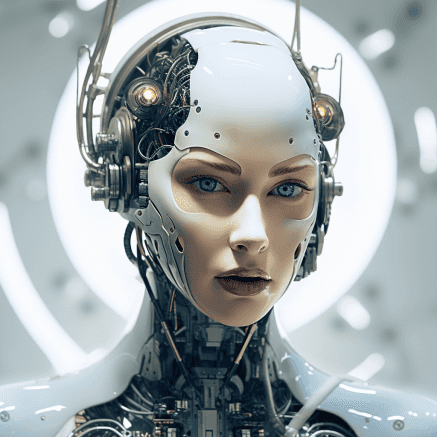
How AI & ML Are Transforming Diagnostics in UAE Hospitals?
20 Jul, 2024
 Healthtrip Team
Healthtrip TeamThe healthcare landscape is undergoing a seismic shift with the advent of Artificial Intelligence (AI) and Machine Learning (ML). In the UAE, hospitals are at the forefront of this technological revolution, leveraging AI and ML to enhance diagnostic accuracy, streamline workflows, and ultimately improve patient outcomes. Here's a closer look at how these technologies are transforming diagnostics in UAE hospitals.
Most popular procedures in India
1. Enhanced Diagnostic Accuracy
AI and Machine Learning (ML) are dramatically improving diagnostic accuracy in UAE hospitals, bringing a new level of precision to medical assessments and treatments. Here’s how these technologies are making a difference:
Wellness Treatments
Give yourself the time to relax
Lowest Prices Guaranteed!

Lowest Prices Guaranteed!
A. Better Imaging Analysis
AI-powered tools are becoming crucial in analyzing medical images such as MRIs, CT scans, and X-rays. These tools are trained to recognize patterns and detect anomalies that might be missed by the human eye. For example:
a. Cancer Detection: AI technology is revolutionizing the way we detect cancer. These smart algorithms can pick up early signs of tumors with incredible precision. The benefit? Catching cancer early on means we can start treatment sooner, leading to better outcomes for patients.
b. Fracture Identification: When it comes to fractures or bone issues, AI is a game-changer. It’s capable of detecting even the tiniest changes in imaging that might be missed by the human eye. This means more accurate diagnoses and quicker, more effective treatment.
B. Advanced Pathology
In the field of pathology, AI is revolutionizing how tissue samples are analyzed. AI systems examine pathology slides to identify cancerous cells and other abnormalities. This enhances the accuracy of diagnoses and provides pathologists with a valuable second opinion, reducing the risk of errors.
C. Data-Driven Diagnostics
AI and ML are also transforming how patient data is analyzed. These technologies process vast amounts of medical records, lab results, and patient histories to identify patterns and correlations that might not be apparent through traditional methods. This can lead to:
a. Early Disease Detection: Imagine a tool that can spot the risk of diseases before you even show symptoms. That’s what AI can do by analyzing patterns and anomalies in patient data. This early warning system means doctors can step in with preventive measures, giving patients a head start on their health.
b. Personalized Insights: AI is like having a personal health assistant that takes your entire medical history and genetic info into account. This means diagnoses aren’t just generic—they’re tailored specifically to you. The result? More accurate and relevant health insights that fit your unique profile.
D. Continuous Learning and Improvement
AI systems continually learn and improve from new data. As more medical images and patient records are processed, these systems become more adept at recognizing complex patterns and making accurate predictions. This continuous learning enhances diagnostic accuracy over time.
2. Personalized Medicine
Personalized medicine is transforming patient care by tailoring treatments to individual characteristics, needs, and preferences. AI and Machine Learning (ML) are central to this shift, enabling a more customized approach to healthcare in UAE hospitals. Here’s how these technologies are enhancing personalized medicine:
A. Tailoring Treatment Plans
AI and ML analyze vast amounts of patient data—such as medical histories, genetic information, and lifestyle factors—to create highly individualized treatment plans. This means treatments are more aligned with each patient’s unique profile, leading to:
a. Customized Drug Therapy: Think of AI as a personal pharmacist that tailors medication just for you. By analyzing your genetic profile and how you’ve responded to treatments before, AI helps find the best drugs and dosages. This means fewer side effects and more effective treatment.
b. Targeted Therapies: When it comes to diseases like cancer, AI is like a detective, pinpointing the exact genetic changes or markers linked to the illness. This makes it possible to use therapies that specifically target cancer cells, sparing the healthy ones and improving treatment outcomes.
B. Predictive Analytics for Risk Assessment
AI and ML models assess individual risk factors by analyzing a patient’s health data. This predictive capability helps in:
a. Early Detection: Imagine AI as a smart health predictor, spotting patterns in your data that could signal the risk of conditions like diabetes or heart disease before they even start. This means you can get a jump on preventive measures and interventions tailored just for your specific risks.
b. Personalized Screening: AI takes the guesswork out of when to get screened. It looks at your unique risk factors and suggests a screening schedule that’s just right for you. This ensures you’re getting the right tests at the right times, helping catch any issues early on.
C. Genomic Medicine
AI’s role in genomics is revolutionizing personalized medicine by:
a. Interpreting Genetic Data: Think of AI as a genetic detective, sifting through your DNA to find variations that could be linked to diseases. This helps doctors create personalized treatment plans and predict how you might respond to different therapies, making your care more effective.
b. Gene Editing and Therapy: AI is like a high-tech toolkit for gene editing. It helps design precise strategies and treatments by digging into the genetic roots of diseases. This means we can target specific mutations or fix genetic issues with pinpoint accuracy.
D. Optimizing Treatment Outcomes
AI and ML contribute to optimizing treatment outcomes by:
a. Dynamic Treatment Adjustments: Imagine AI as a real-time health coach, keeping track of how you’re responding to treatments and suggesting tweaks as needed. This means your treatment stays on target and adapts to changes in your condition, ensuring you get the best care possible.
b. Data-Driven Insights: AI digs through data from past patients with similar profiles to uncover what treatments worked best for them. This helps doctors make smarter, evidence-based decisions about your care, improving the chances of finding the most effective treatment for you.
3. Streamlined Workflows
AI and Machine Learning (ML) are significantly transforming hospital workflows, making processes more efficient and allowing healthcare professionals to focus on what they do best—caring for patients. Here’s how these technologies are streamlining operations in UAE hospitals:
A. Automating Administrative Tasks
AI-powered systems are automating routine administrative tasks, which reduces the burden on healthcare staff and minimizes errors:
a. Data Entry and Management: AI takes over the tedious task of entering and managing patient data, from electronic health records to lab results. This speeds things up and cuts down on mistakes that can happen with manual data entry.
b.Appointment Scheduling: AI-powered scheduling systems streamline the process of booking appointments. By balancing availability and patient needs, these systems reduce wait times and keep things running smoothly.
B. Enhancing Decision-Making
AI and ML support healthcare professionals with decision-making tools that enhance clinical and operational efficiency:
a. Clinical Decision Support: Imagine AI as a trusted advisor for doctors, analyzing patient data and offering recommendations based on extensive medical research and guidelines. It helps clinicians make smarter decisions about diagnoses and treatments, backed by the latest evidence.
b. Predictive Analytics: AI can look into the future by predicting patient outcomes and potential complications. This foresight allows healthcare providers to take proactive steps, improving care management and reducing the need for unnecessary procedures.
C. Optimizing Resource Management
AI and ML are improving the management of hospital resources, leading to cost savings and better allocation:
a.Inventory Management: AI helps keep tabs on medical supplies and equipment, making sure you have just the right amount without overstocking. This cuts down on waste and ensures that essential resources are always on hand when you need them.
b. Staff Allocation: AI analyzes patient flow and staff schedules to make sure you have the right number of healthcare professionals on duty, especially during busy times. This boosts efficiency and enhances patient care by matching staffing levels with demand.
D. Improving Communication
Efficient communication is crucial in a hospital setting, and AI is enhancing how information is shared:
a. Patient Monitoring: AI keeps a close watch on patient vitals and sends alerts if something needs immediate attention. This real-time monitoring helps healthcare providers act quickly and keeps patients safer.
b. Interdepartmental Coordination: AI makes it easier for different departments to work together by streamlining the flow of information. This ensures everyone involved in a patient’s care is up-to-date and on the same page.
4. Early Disease Detection
AI and Machine Learning (ML) are at the forefront of advancing early disease detection in UAE hospitals, transforming how quickly and accurately diseases are identified. Early detection is crucial for effective treatment and better patient outcomes. Here’s how AI and ML are making a difference in spotting diseases before they become critical:
A. Analyzing Medical Imaging
AI-powered imaging tools are revolutionizing the way medical images are analyzed. These tools:
a. Spot Early Anomalies: AI can pick up on subtle changes in imaging scans, like MRIs, CTs, and X-rays, that might signal the early stages of diseases such as cancer or heart conditions. Catching these issues early means doctors can step in with prompt treatment.
b.Increase Accuracy: By comparing current images to a huge database of past cases, AI enhances diagnostic accuracy and reduces the chances of missed or incorrect diagnoses. This means more reliable results and better patient care.
B. Monitoring Vital Signs
AI and ML are enhancing the monitoring of vital signs through:
a. Real-Time Analysis: Wearable devices and smart sensors keep track of vital signs like heart rate, blood pressure, and oxygen levels. AI analyzes this data in real time to spot any abnormalities that might signal the start of serious health issues.
b.Predictive Alerts: AI systems send instant alerts if your vital signs suggest potential problems, like early signs of a heart attack or breathing issues. This allows for quick medical attention and timely intervention.
C. Predictive Analytics for Risk Assessment
Predictive analytics is a powerful tool in identifying individuals at risk for certain diseases:
a. Risk Modeling: AI digs into your health history, genetic data, and lifestyle to figure out your risk of developing diseases like diabetes, cancer, or heart disease. This helps identify those who might benefit from early screenings and preventive measures.
b. Personalized Screening: With a clear picture of your risk, AI can suggest a screening schedule and tests that are just right for you. This tailored approach boosts the odds of catching any issues early on.
D. Analyzing Genetic Data
In genomic medicine, AI plays a key role in early disease detection:
a. Genetic Risk Identification: AI examines genetic data to spot mutations or variations that could be linked to inherited diseases. This means we can detect potential conditions before symptoms even appear, allowing for more effective management if caught early.
b. Customizing Preventive Strategies: With insights into your genetic makeup, AI helps create personalized prevention plans, like lifestyle adjustments or regular screenings. This tailored approach ensures you’re taking the right steps to stay healthy.
AI and ML are transforming early disease detection by improving the accuracy of medical imaging, monitoring vital signs, predicting risks, and analyzing genetic data. These advancements enable healthcare providers in UAE hospitals to identify diseases at their earliest stages, leading to more effective treatments and better patient outcomes. As AI technology continues to evolve, its role in early disease detection will become even more integral to enhancing healthcare quality and patient care.
Real-World Examples in UAE Hospitals
Hospitals in the UAE are embracing the power of Artificial Intelligence (AI) and Machine Learning (ML) to revolutionize how they diagnose and treat patients. Here’s a look at how these technologies are making a real difference in some of the region’s leading hospitals.
A. American Hospital Dubai
a. AI in Pathology: At American Hospital Dubai, AI is revolutionizing pathology. These smart algorithms assist pathologists in examining tissue samples to spot cancerous cells with greater accuracy. This extra layer of analysis helps ensure that diagnoses are precise.
b. Decision-Making Support: AI is also a valuable partner for doctors when making clinical decisions. By analyzing patient data in real-time and comparing it with extensive medical information, AI tools guide doctors in selecting the best treatments and making well-informed choices.
B. Mediclinic City Hospital
a. Wearable Tech for Continuous Monitoring: At Mediclinic City Hospital, AI-powered wearables keep a close eye on patients’ vital signs 24/7. These devices track things like heart rate and blood pressure, sending immediate alerts to doctors if anything seems off. This means potential health issues can be caught early on.
b.Personalized Treatment Plans: AI is also key in crafting treatments that fit each patient’s unique needs. By analyzing genetic and medical data, AI helps develop personalized treatment plans that are more effective and come with fewer side effects.
C. Burjeel Hospital Abu Dhabi
a. AI for Better Diagnostics: At Burjeel Hospital Abu Dhabi, AI is enhancing the accuracy of diagnostic tests. These advanced tools analyze imaging and lab results, giving doctors detailed insights that help them diagnose complex conditions with greater precision.
b. Streamlining Data Analysis: The hospital also uses AI to manage vast amounts of medical data more efficiently. By automating this process, they cut down on human errors and speed up diagnostics, so doctors can spend more time focusing on patient care.
D. NMC Royal Hospital Abu Dhabi
a. Early Detection with AI: At NMC Royal Hospital, AI is on the front line of early disease detection. By analyzing electronic health records, AI spots patients who are at higher risk for conditions like diabetes and heart disease. This allows for earlier intervention and improved preventive care.
b. Enhanced Imaging Analysis: AI also plays a crucial role in interpreting medical images, such as X-rays and MRIs, at NMC Royal Hospital. This technology helps radiologists spot abnormalities more accurately and quickly, leading to better outcomes for patients.
AI and ML are truly revolutionizing diagnostics in UAE hospitals, making healthcare smarter, more precise, and incredibly responsive to individual patient needs. These technologies are enhancing diagnostic accuracy, streamlining workflows, and personalizing treatments in ways that were once unimaginable. As AI and ML continue to advance, they promise even greater improvements in the quality of care, ensuring that patients receive the best possible outcomes. By embracing these innovations, UAE hospitals are not just keeping up with global trends—they’re leading the way in healthcare excellence and setting new standards for the future.
Most popular wellness packages
Related Blogs

The Impact of Big Data on Personalized Medicine in UAE Healthcare
Imagine a world where your healthcare is tailored just for
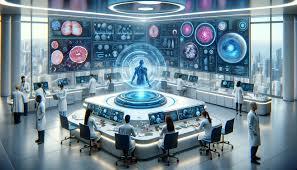
AI-Enhanced Pathology: Transforming Cancer Diagnosis in UAE
Cancer diagnosis has traditionally depended on pathologists manually examining tissue
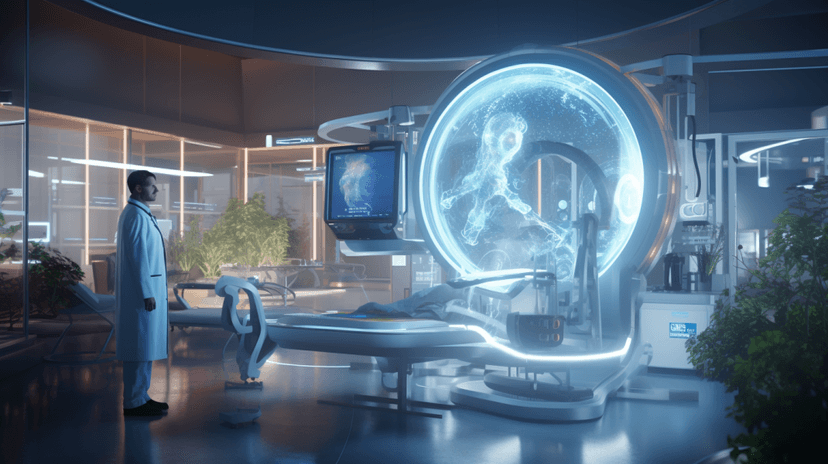
The Role of AI in Cancer Treatment in the UAE
In the ever-evolving world of healthcare, the UAE is leading
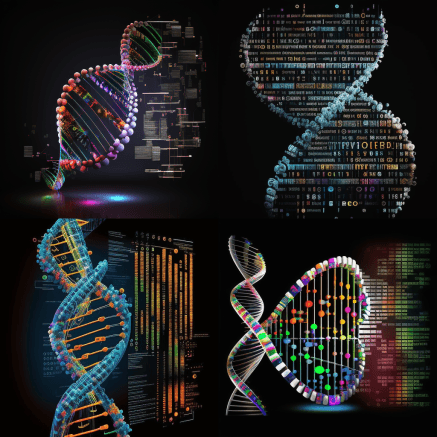
How Precision Medicine is Changing Cancer Treatment in the UAE
In recent years, cancer treatment in the UAE has seen
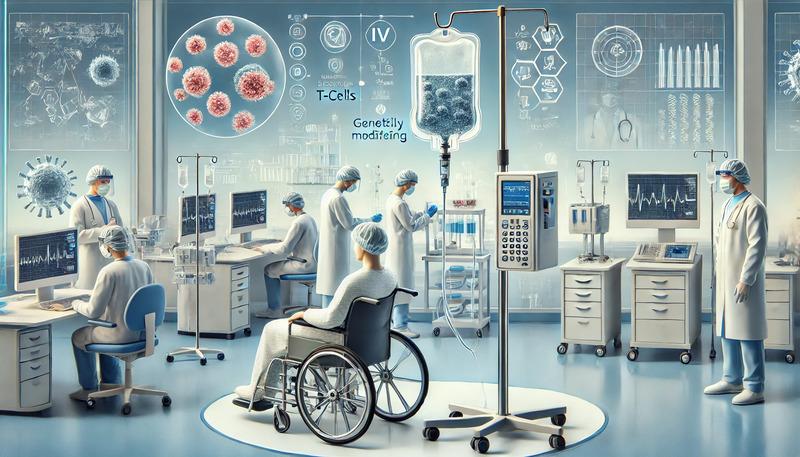
Best UAE Hospitals for CAR T-Cell Therapy
In recent years, CAR T-cell therapy has revolutionized cancer treatment,










